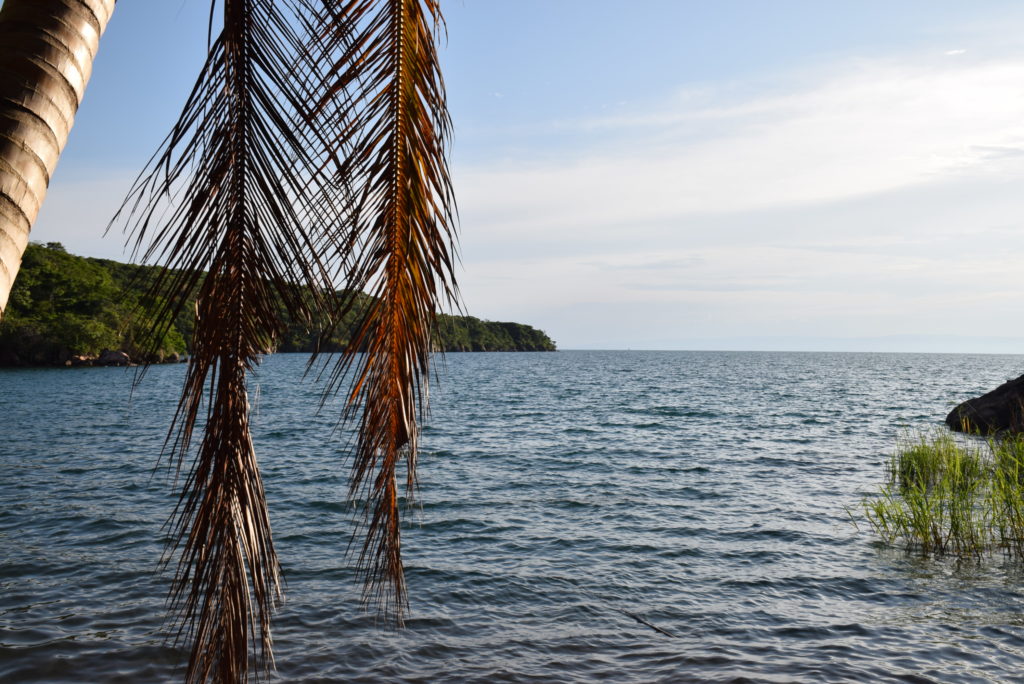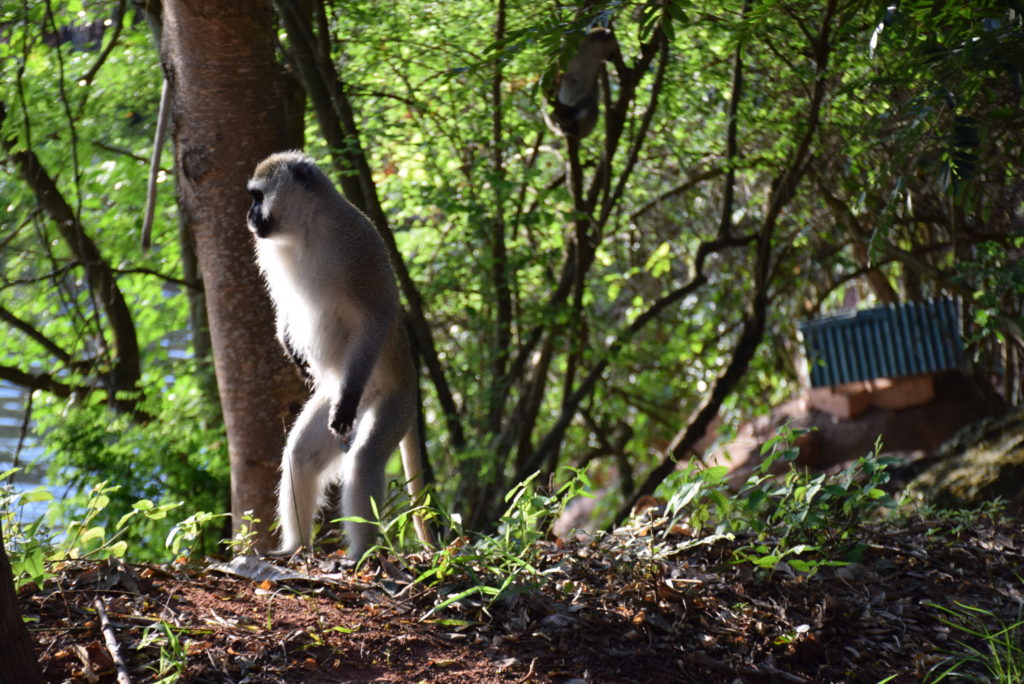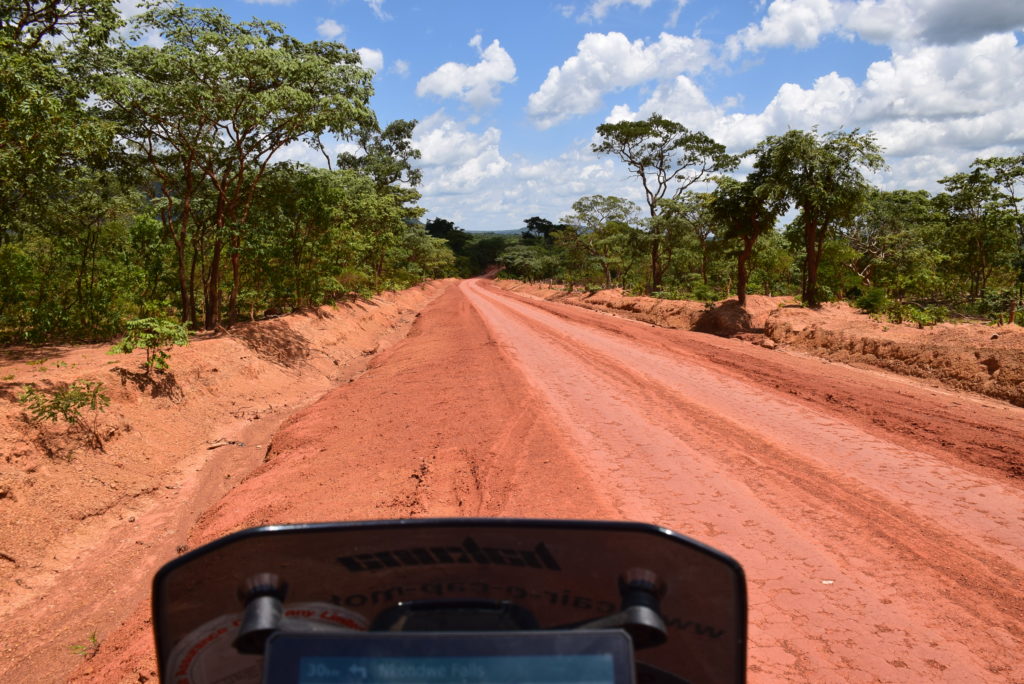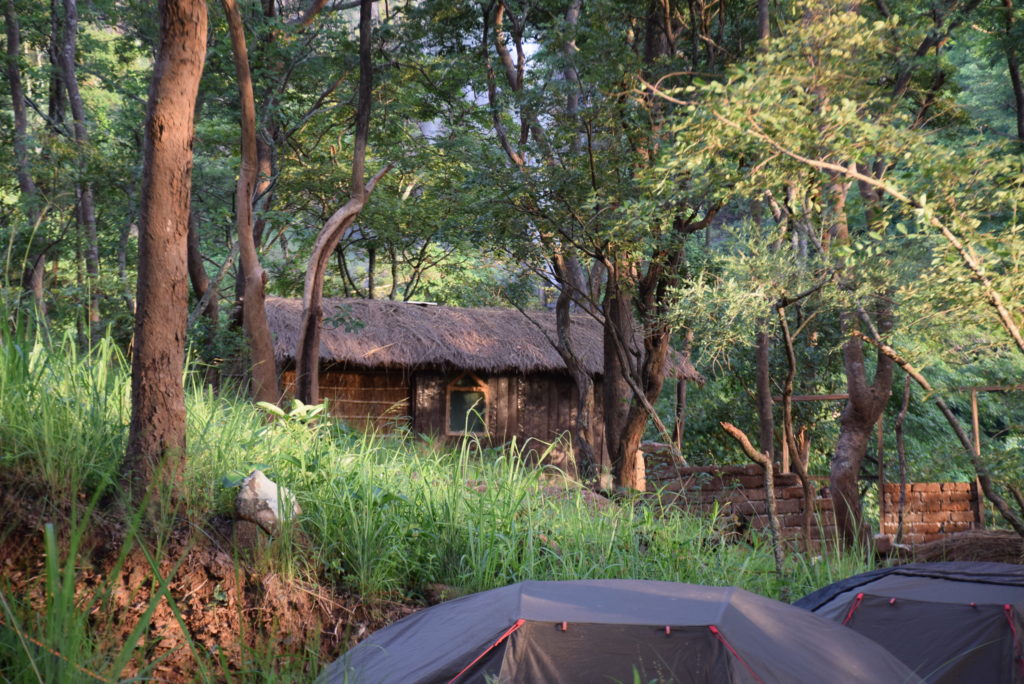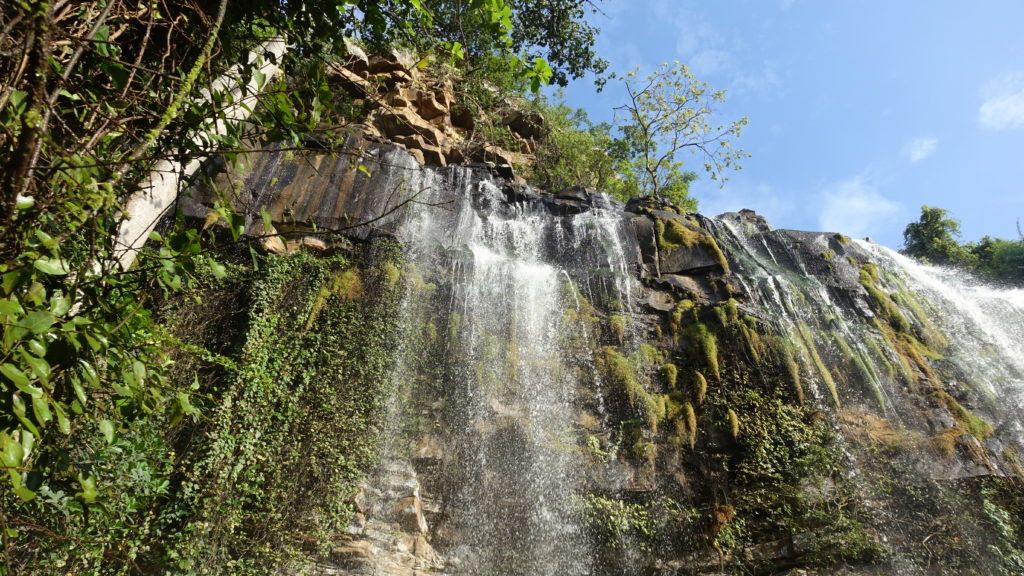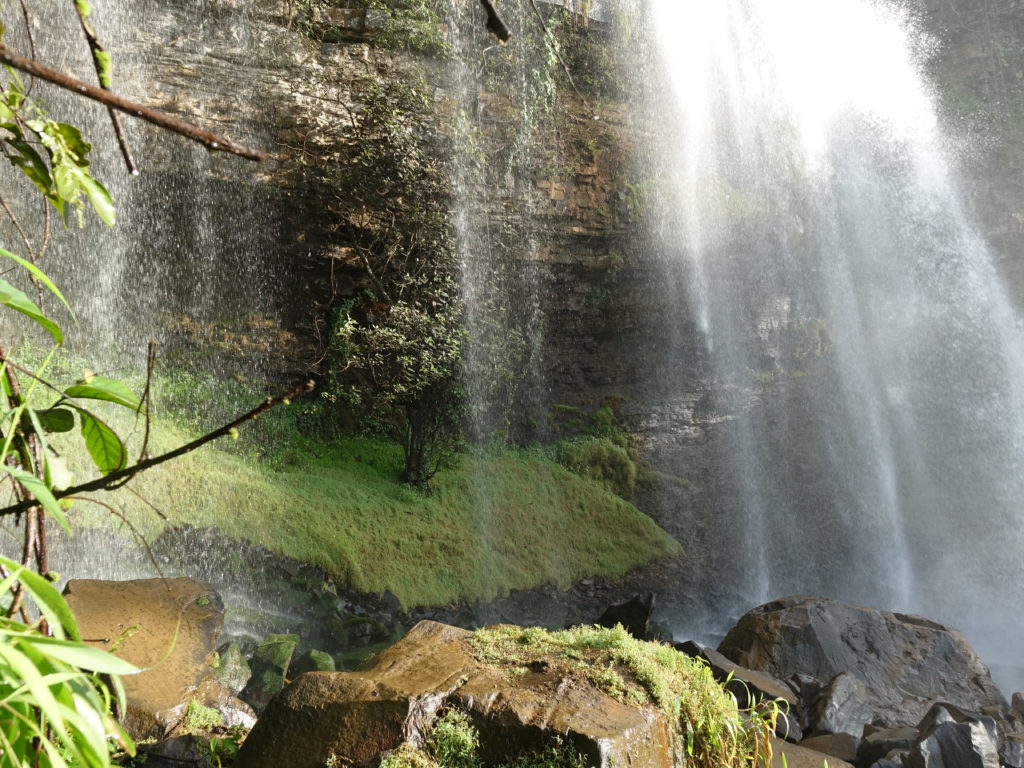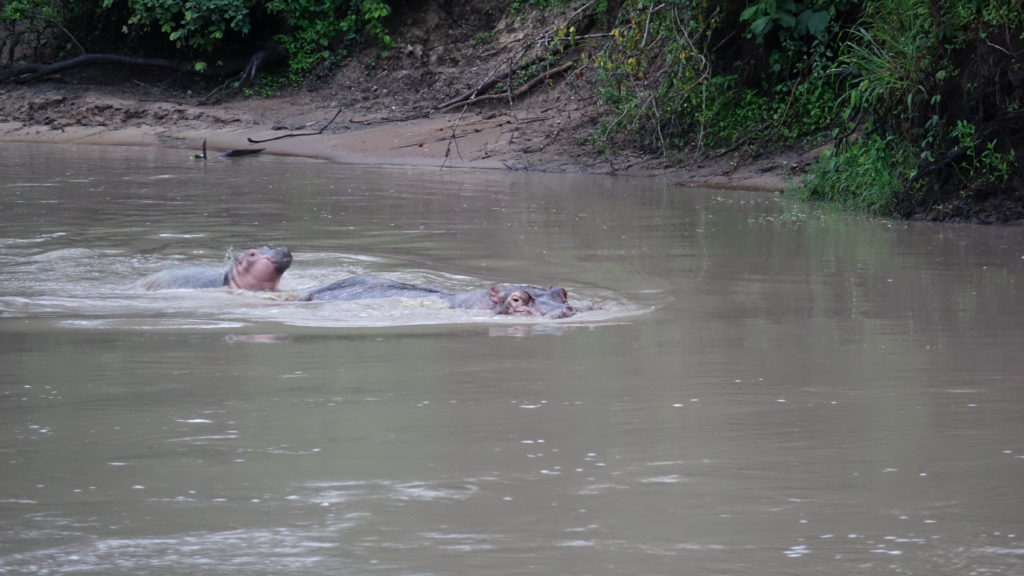No covid test this time. Emigration and immigration go quickly. Here we are at the customs.
The customs officer makes us sit in his office. As soon as we are seated, the power goes out. Don’t panic, the customs officer waits for the power to come back on so that he can use the PC, fortunately the failure will only last a few minutes. It will take about an hour to clear the motorbikes and fill in the customs books. Everything is now done and we think we can go. “I have to check your luggage” exclaims the customs officer, it’s the first time we’ve been asked to do so and it’s raining slightly. We open our trunks, he takes a distracted look and we can go. Phew, we didn’t go out at all. Because travelling on a motorbike with all the bivouac equipment, it’s every day a struggle to get back on the road.
At the end of the day we find our tents. We set up camp on the edge of Lake Tanganyika, which is almost 750 kilometres long, and the place is idyllic, there is even a small beach. We are in the middle of nature with the baboons. We are obliged to place the food in a wire mesh area to prevent the baboons from stealing it from us.
The next day, we leave this magnificent corner of nature. After several hours on the track, we settle down at the end of the day in the middle of the bush at the foot of a splendid waterfall. When I take my water canister out of the suitcase, which I thought was full, I realise that there is only one litre of water left. Fortunately there is a village 5km away where we will certainly find water tomorrow. It will be just enough to prepare our second freeze-dried meal.
Next day
After taking a picture of the waterfall, we go to the village to find water and lunch. When we arrive in the village, we park the bikes and a horn sounds. A 4X4 vehicle stops on the track. The driver gets out, he is a German travelling alone from Namibia to the Congo. He is surprised to see our SW motech equipment and takes multiple pictures. He lives right next to the SW motech company in Germany. I walk into the village to find water and lunch. Water is easy, lunch is 6 bananas. As each time we stop a crowd of people forms around the motorbikes, we decide to ride 2 to 3 kilometres before stopping to enjoy our frugal lunch. After eating our 6 bananas we get back on the track.
A few kilometres further on, we leave the track to find a tarmac road. We stop at a petrol pump to fill up the bikes. When I get off the bike I see my right overcase half open, I forgot to close it after taking out the bananas for lunch. At a glance I immediately see that things are missing. I quickly make an inventory: a pack of wipes, the dish sponge, and the venom vacuum cleaner are missing. The wipes and the sponge are not important, as for the venom vacuum cleaner, let’s hope we won’t need it. We finish our last hour of the trip in a thunderstorm. The rain is so intense that the impact of the drops on the touch screen of my GPS activates it and regularly makes the map of the route to follow disappear. We are equipped with cross/enduro type helmets, ideal for riding in hot weather as they are much more ventilated than full face helmets. However, in the rain, the lower part of the face is not protected. The impact of water drops on the lips is particularly unpleasant, each drop causes a painful pinch. I use two techniques to compensate for this: either I pull my lips into my mouth or I slide three fingers of my left hand over my lips. We decide to go to a hotel that night to dry off.
Arriving at the hippo hotel, the rain finally stops. The hotel is located 50 meters from a stream where hippos live. The receptionist explains to us that hippos, and elephants in the dry season, sometimes cross the courtyard of the hotel. He takes us to the edge of the river to show us the hippos. It takes a little patience before we see the first one. The receptionist advises us to come back to see them around 7pm.
I go back to watch them in the early evening as advised. I will have the chance to see a mother and her baby. I set up the camera in bursts to be sure not to miss anything. They emerge, I shoot and they dive again. Hippos are capable of staying underwater for up to 10 minutes. I look at my pictures and there, the disappointment, in the heat of the action I did not realize that the focus of the camera was adjusted on a tree in the foreground and the hippos in the background are blurred. Damn, I missed it.
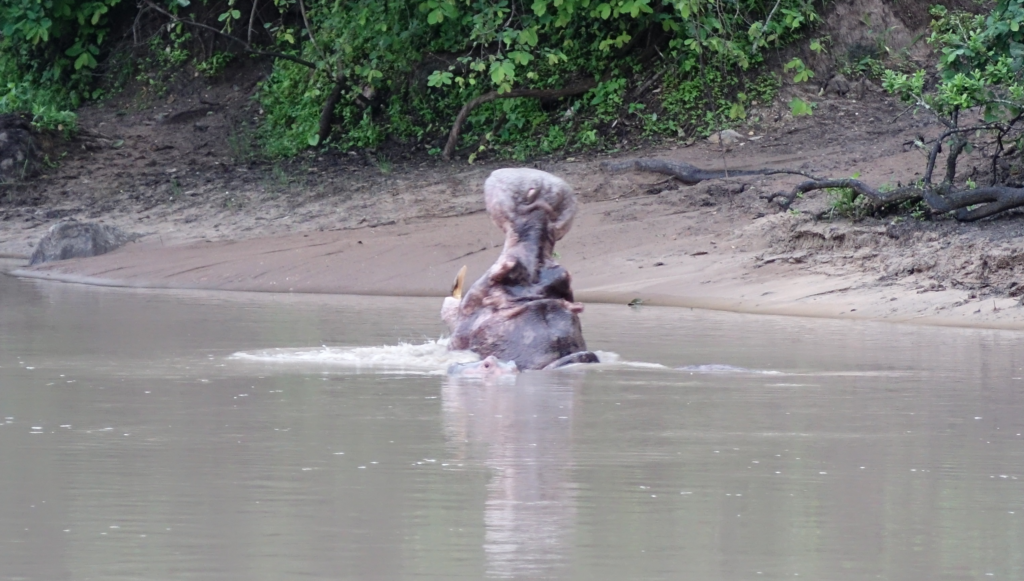
Tu as une salle gueule quand tu ris, même de dos !
Jour suivant
This morning we take a track through a national park. We will have the opportunity to see about thirty hippos in the water. As we are in a park where wild animals are concentrated, I prefer not to stop to immortalize the hippos, you never know. We will also see a herd of gazelles. We will be overtaken by trucks and buses driving at full speed on the tracks. They wobble from one side of the track to the other, keeping their foot to the floor. Glad to be on our bikes and not in the bus.
Next day
We stop in town at the Zanzibar hotel. For the first time we find terraces where it is possible to drink a beer. We also have the opportunity to eat street food. Poverty and misery are also present. Children accost us to ask for food. We are powerless in front of this distress, it is a difficult moment to live. Tomorrow we will go to Zambia
